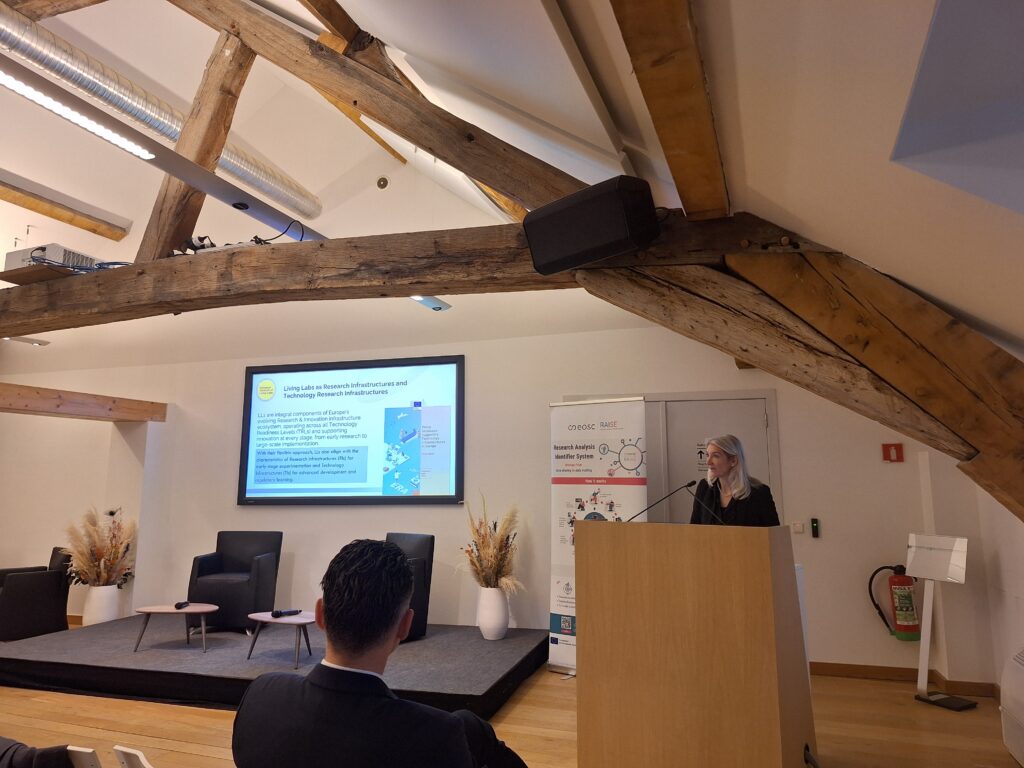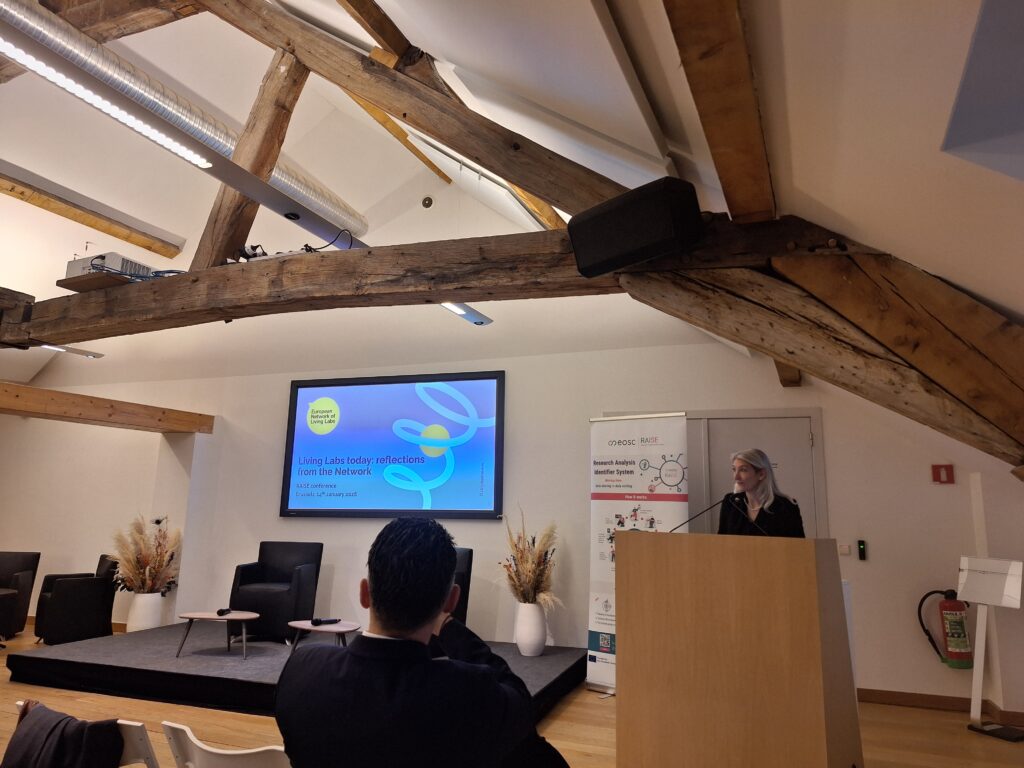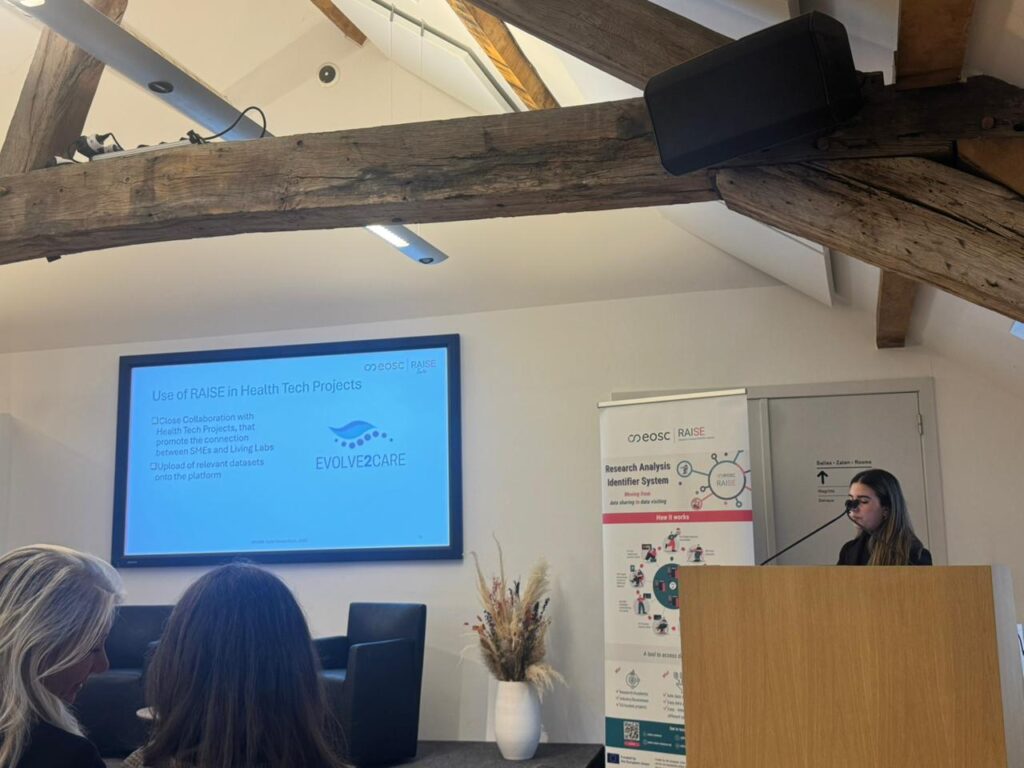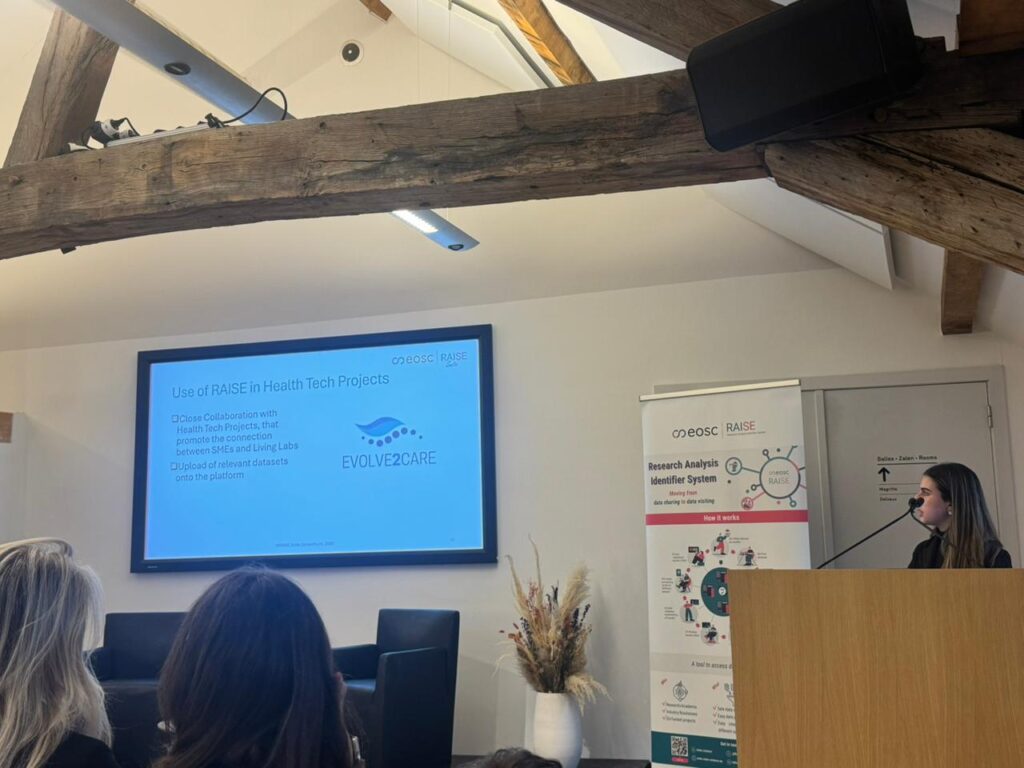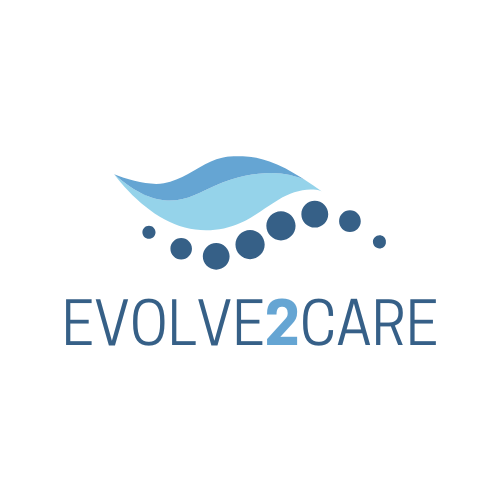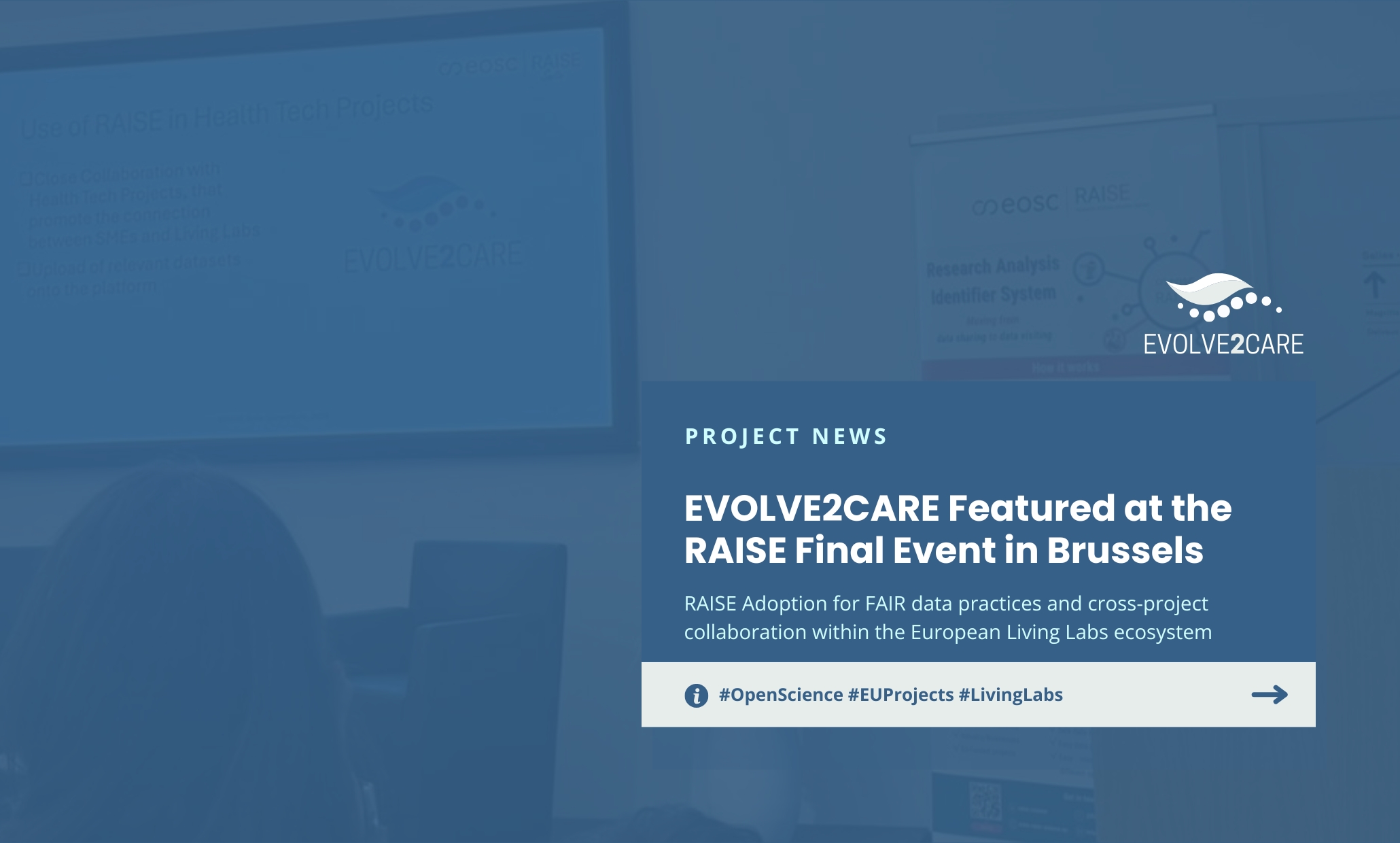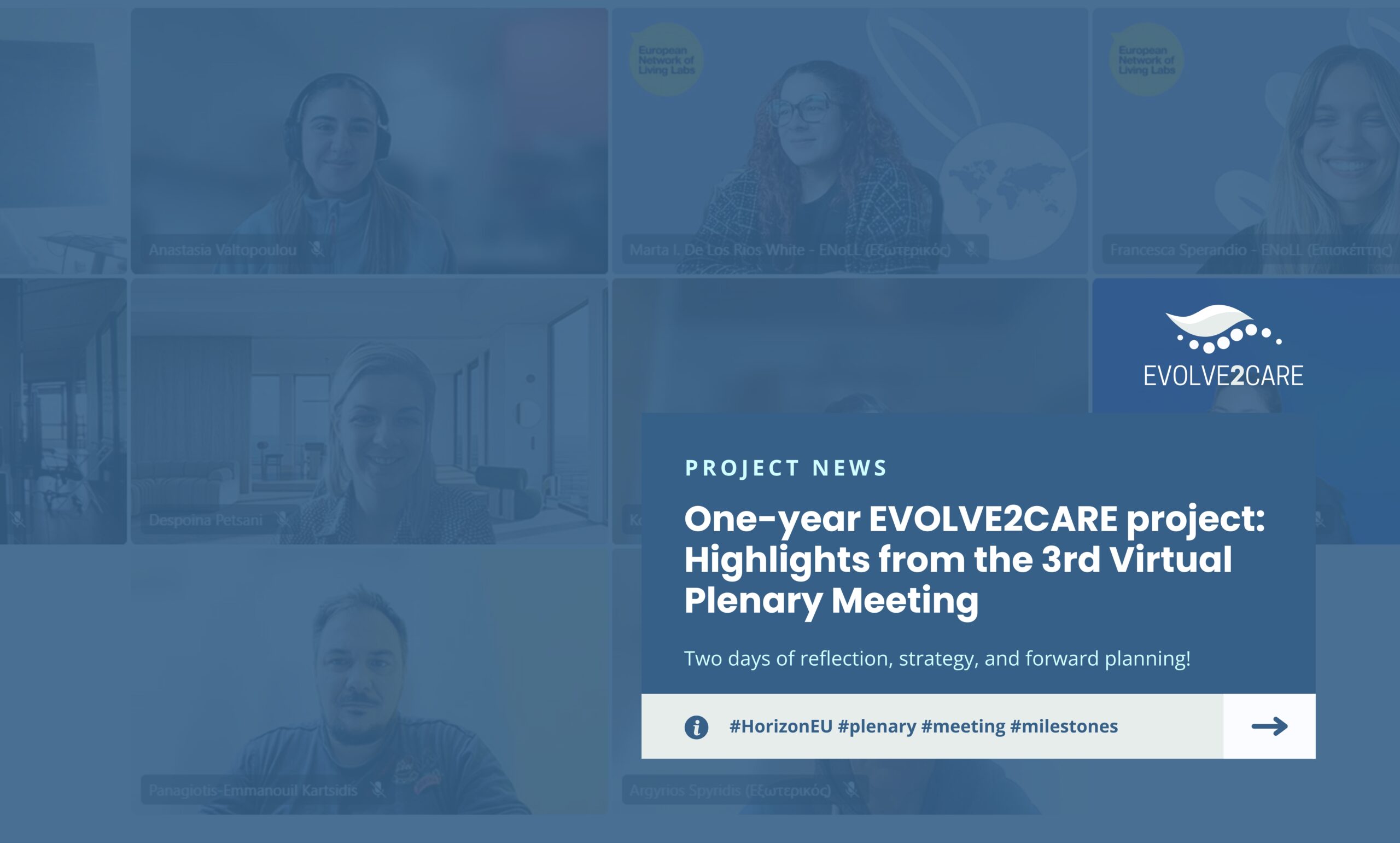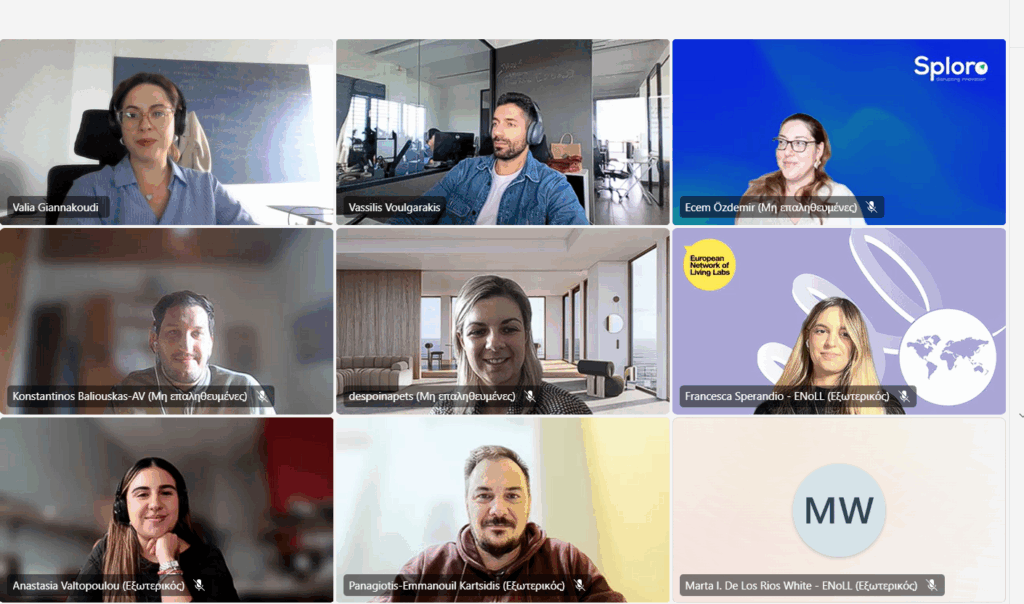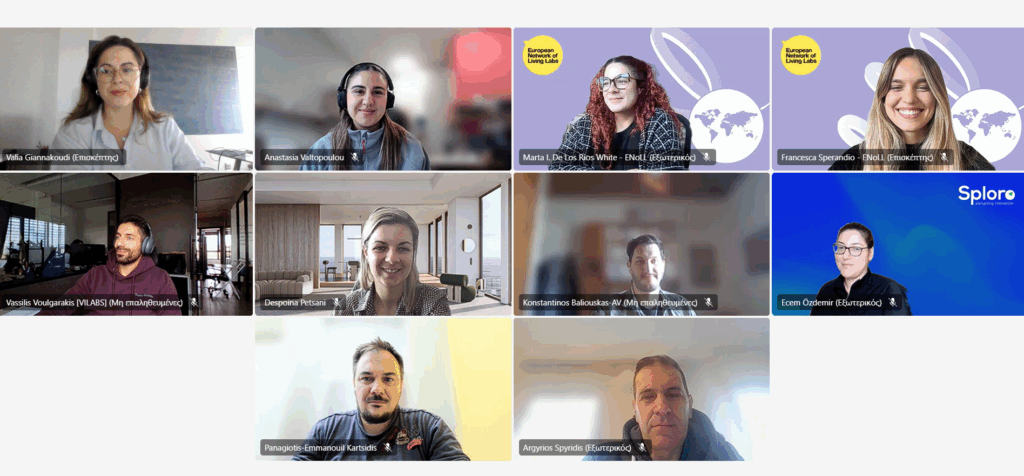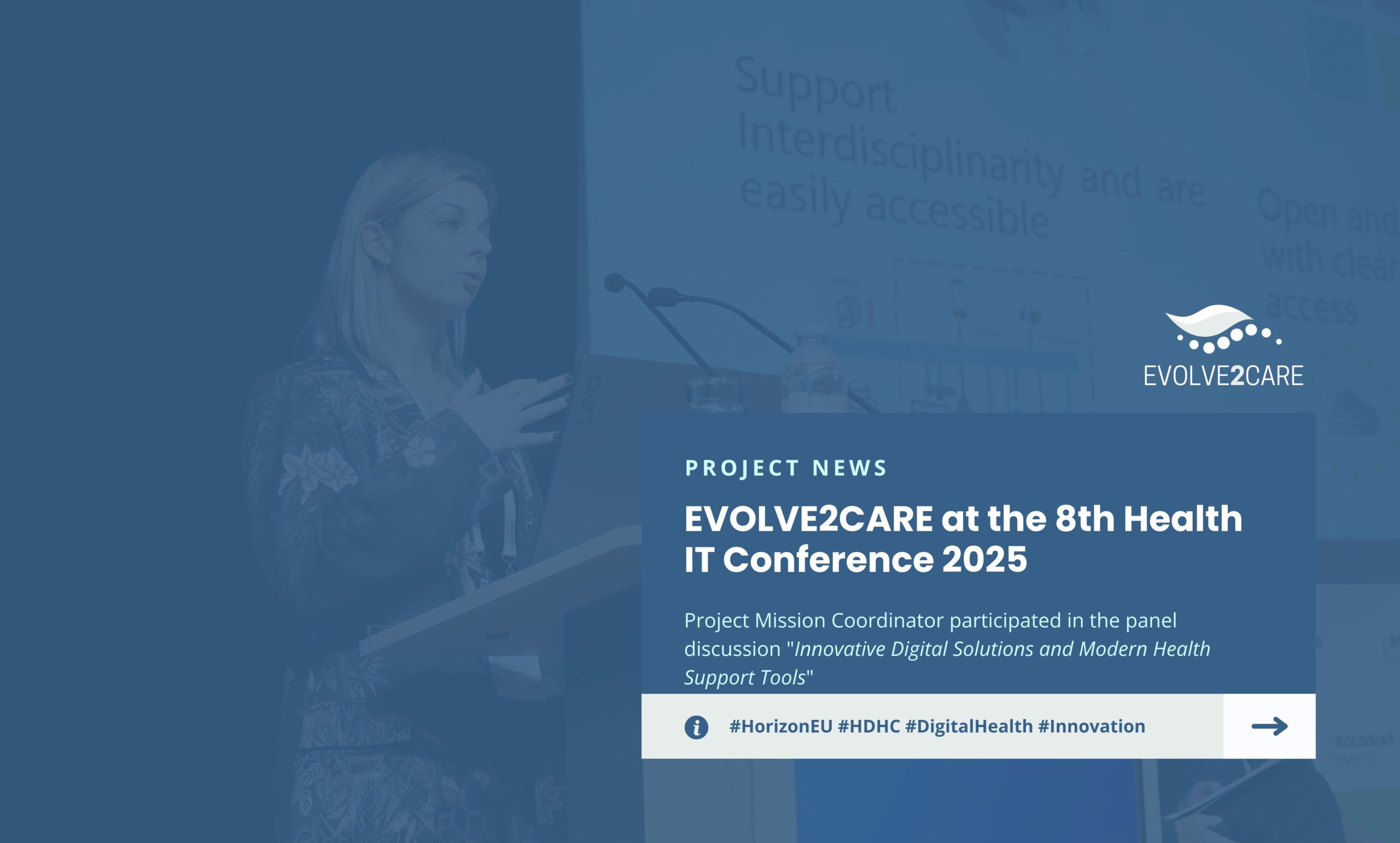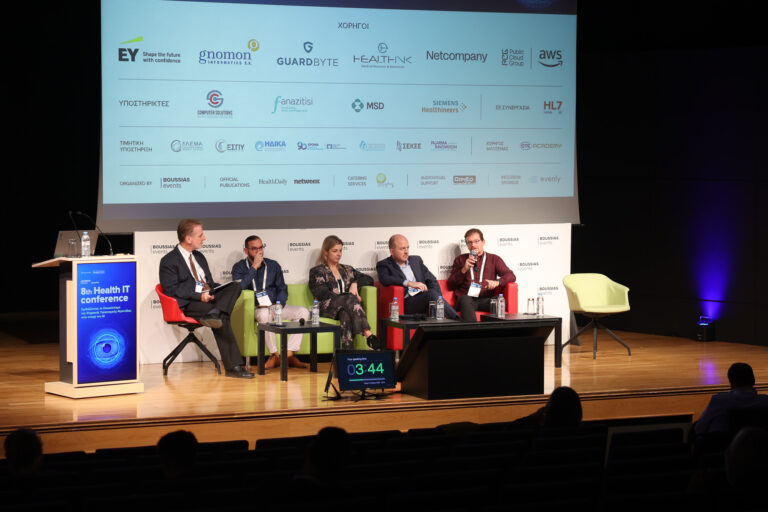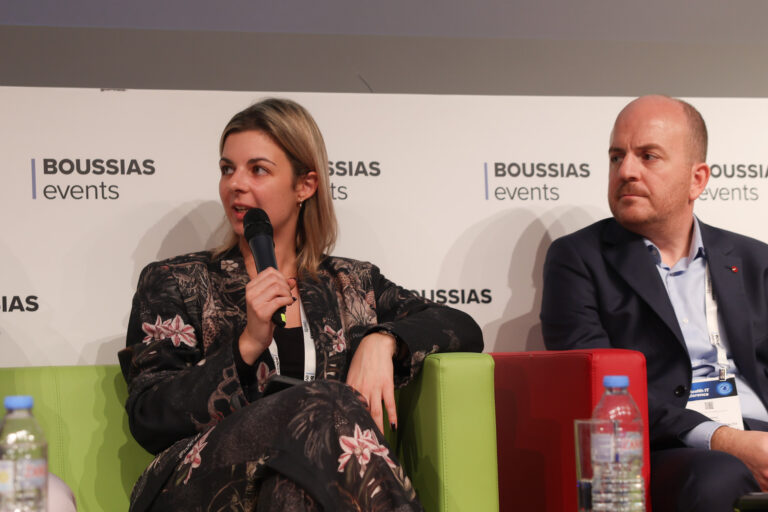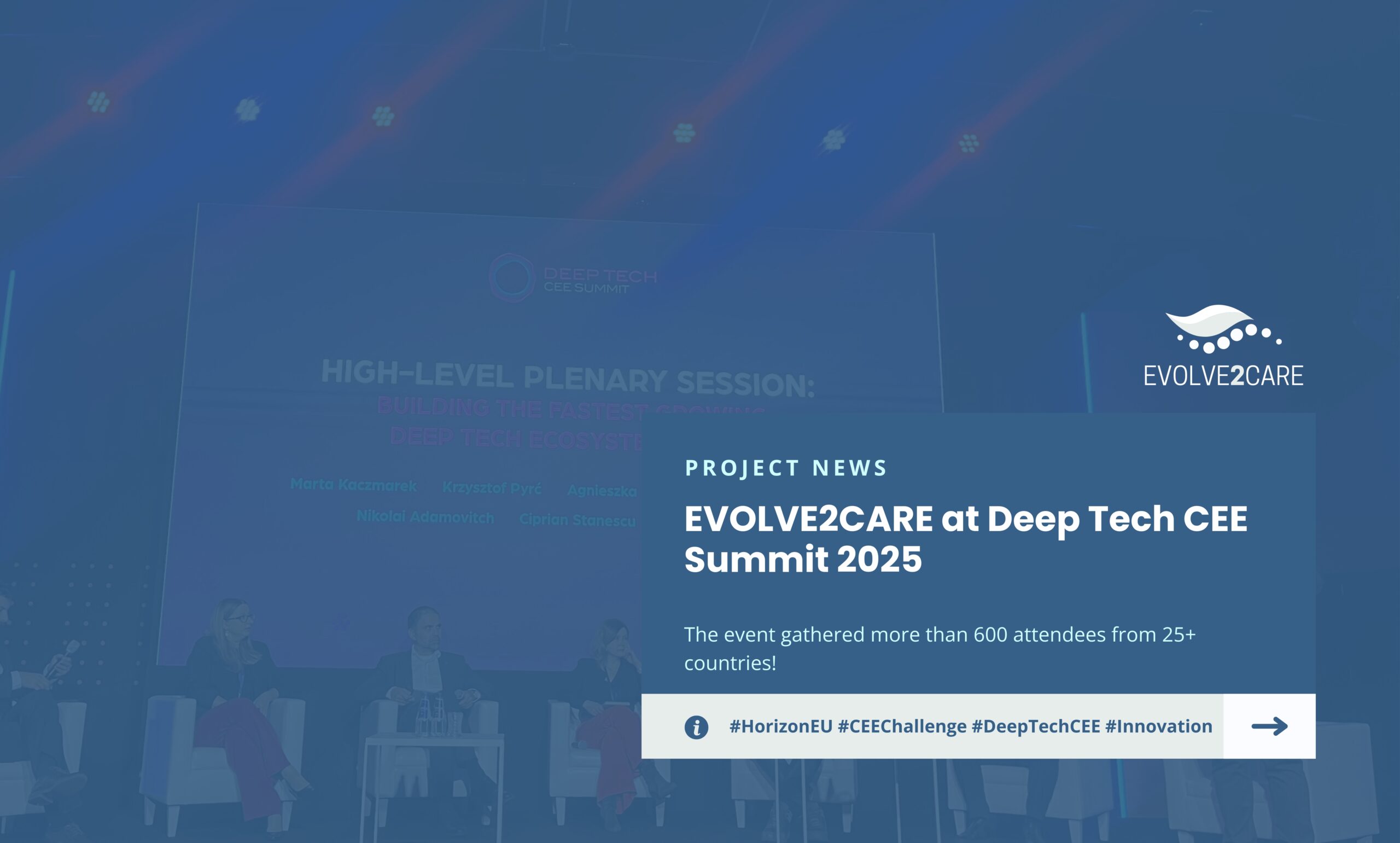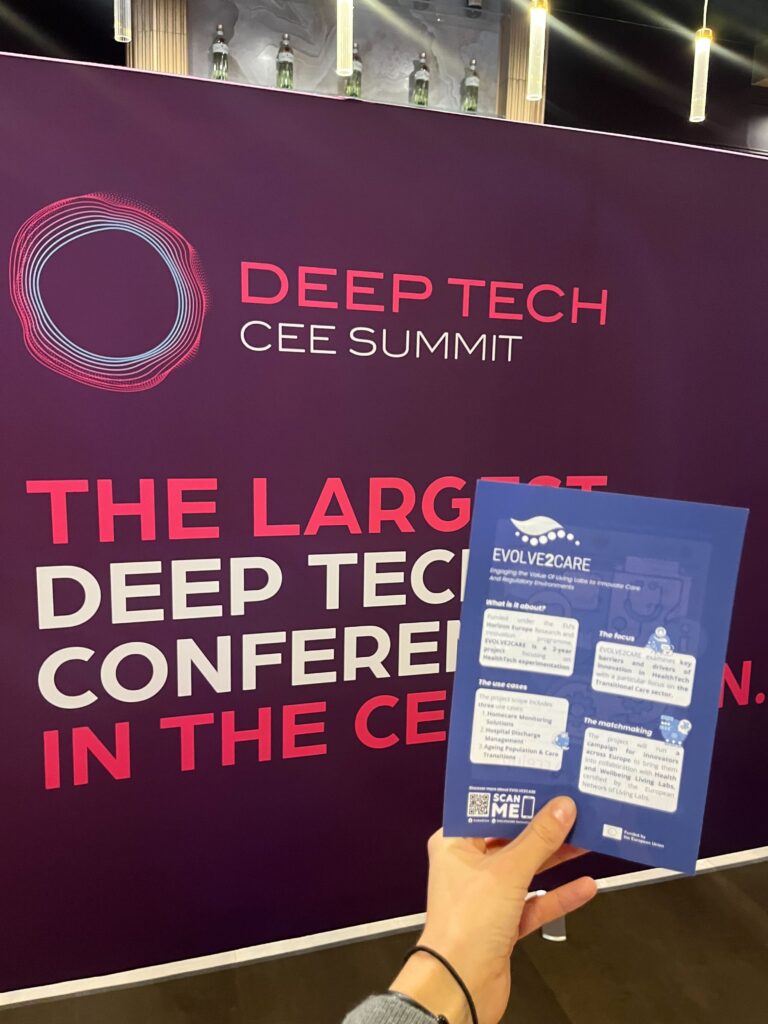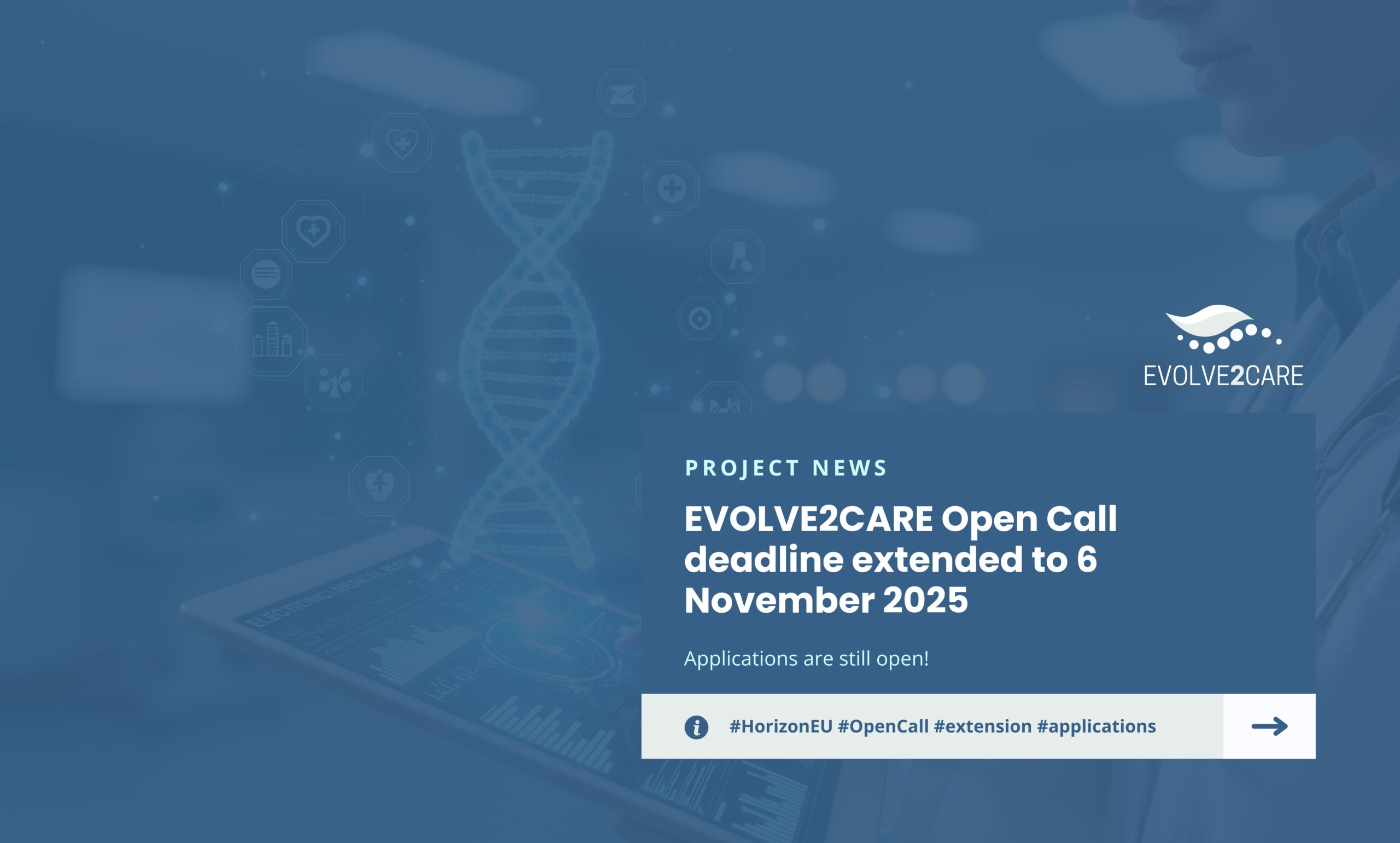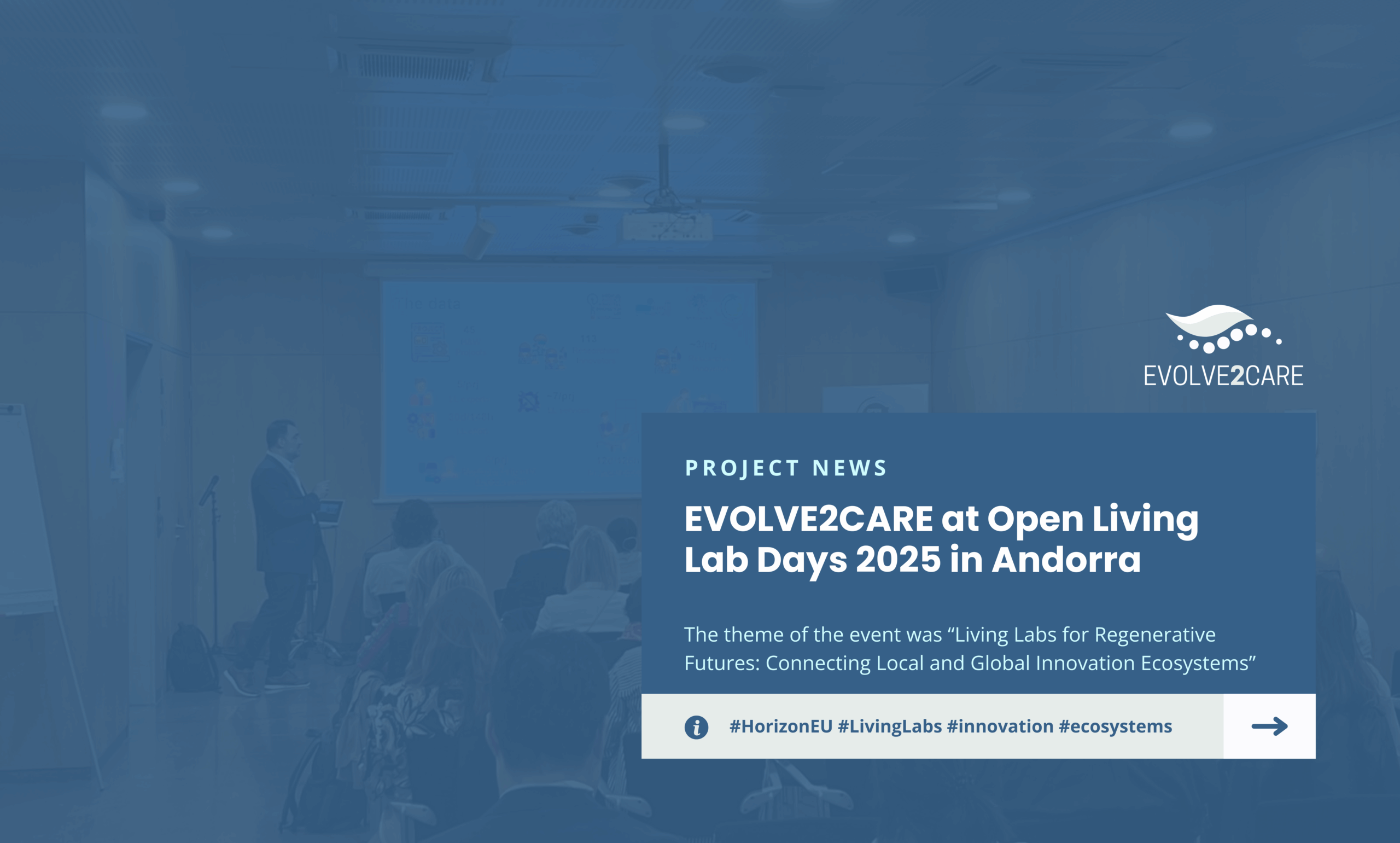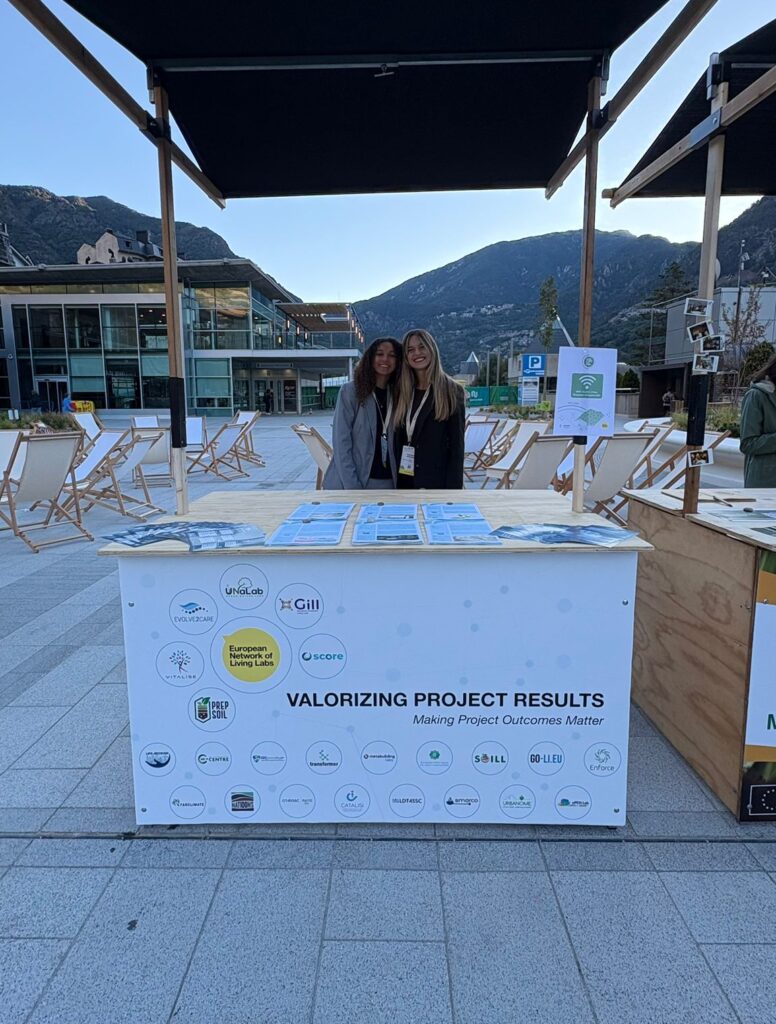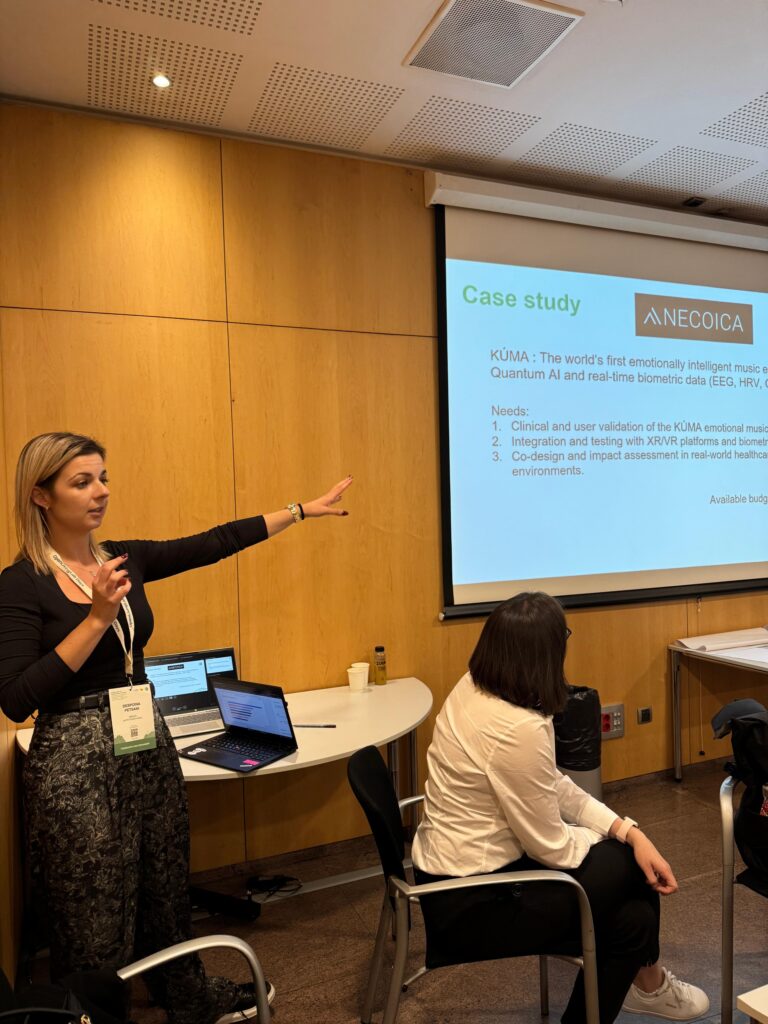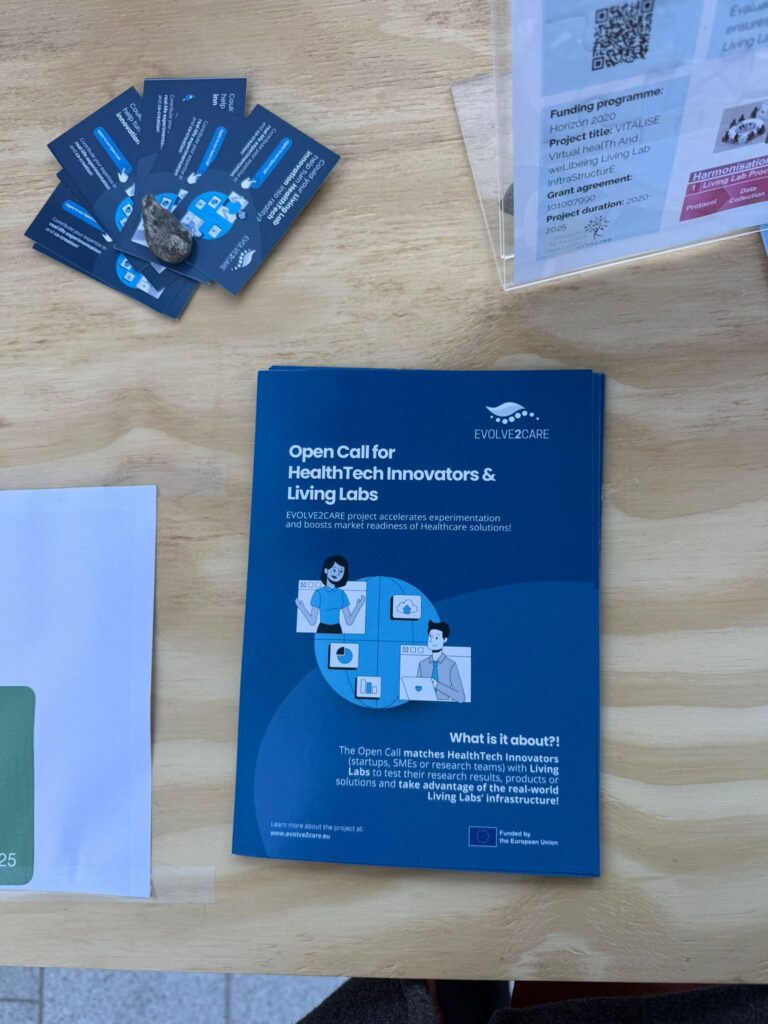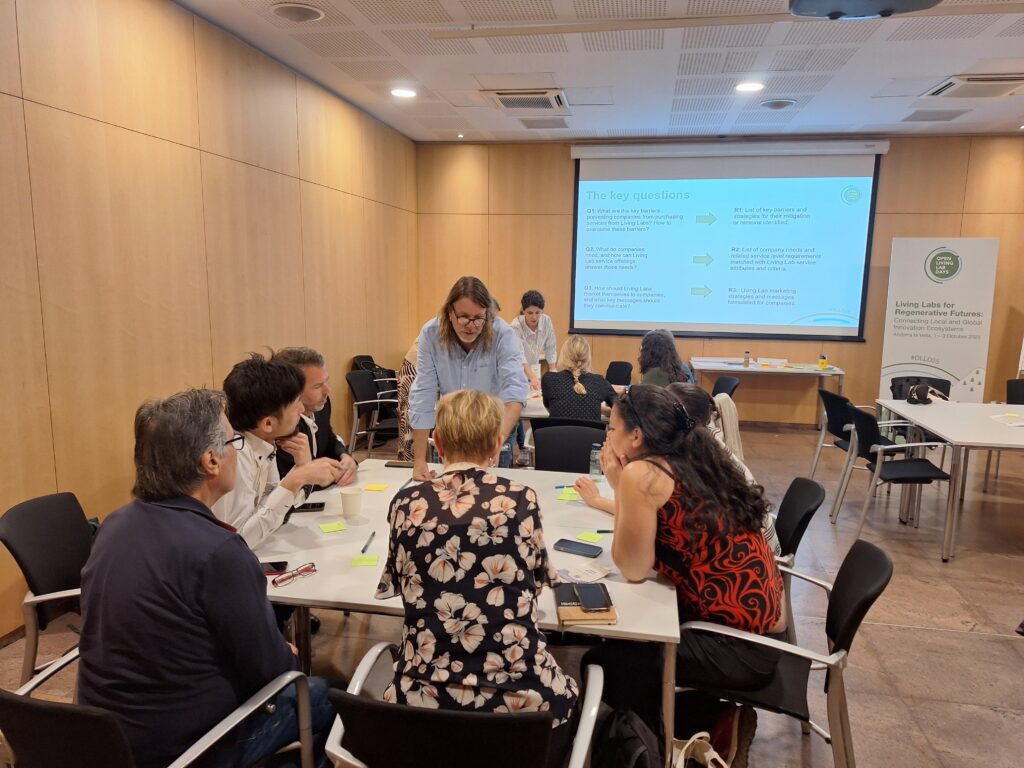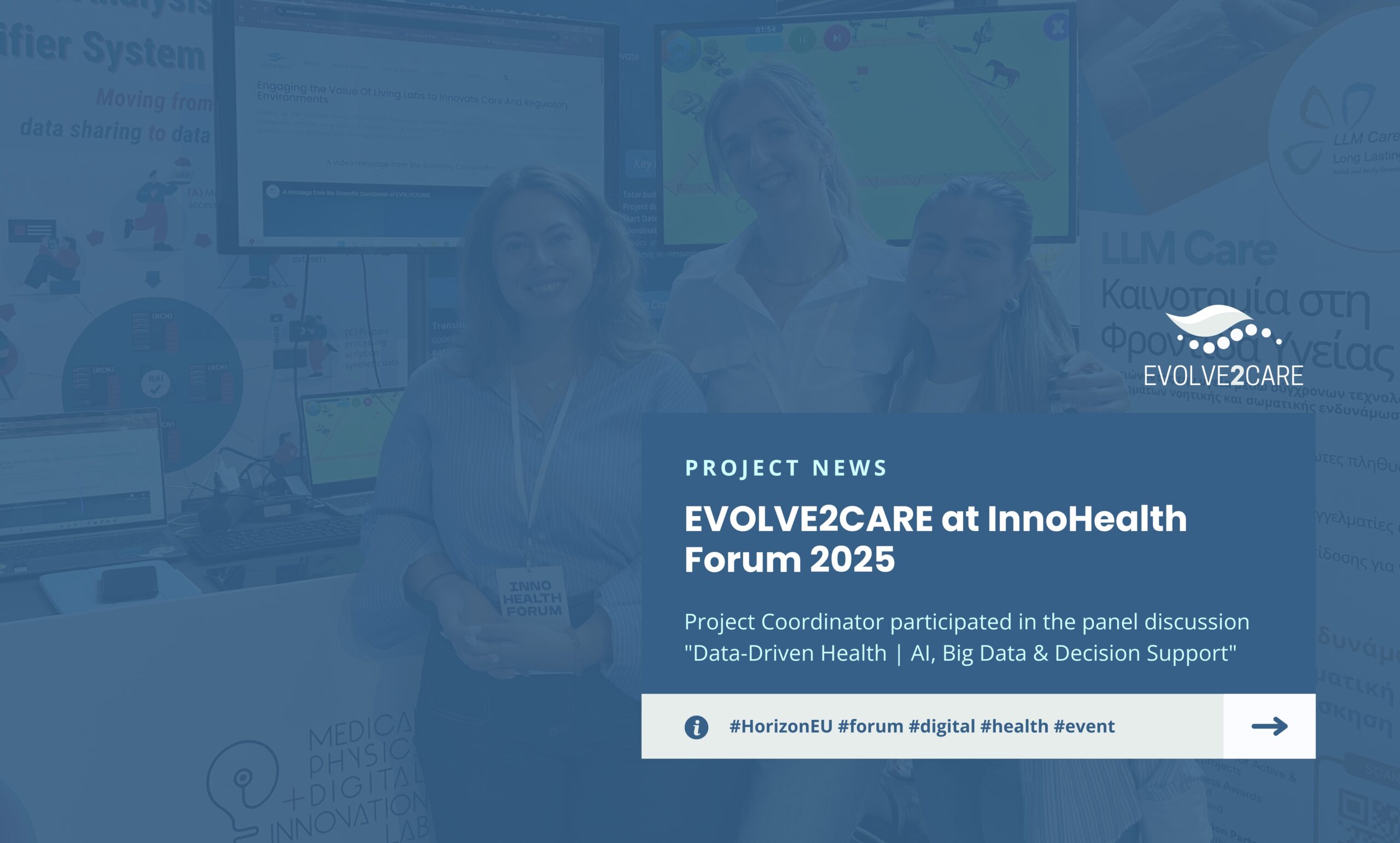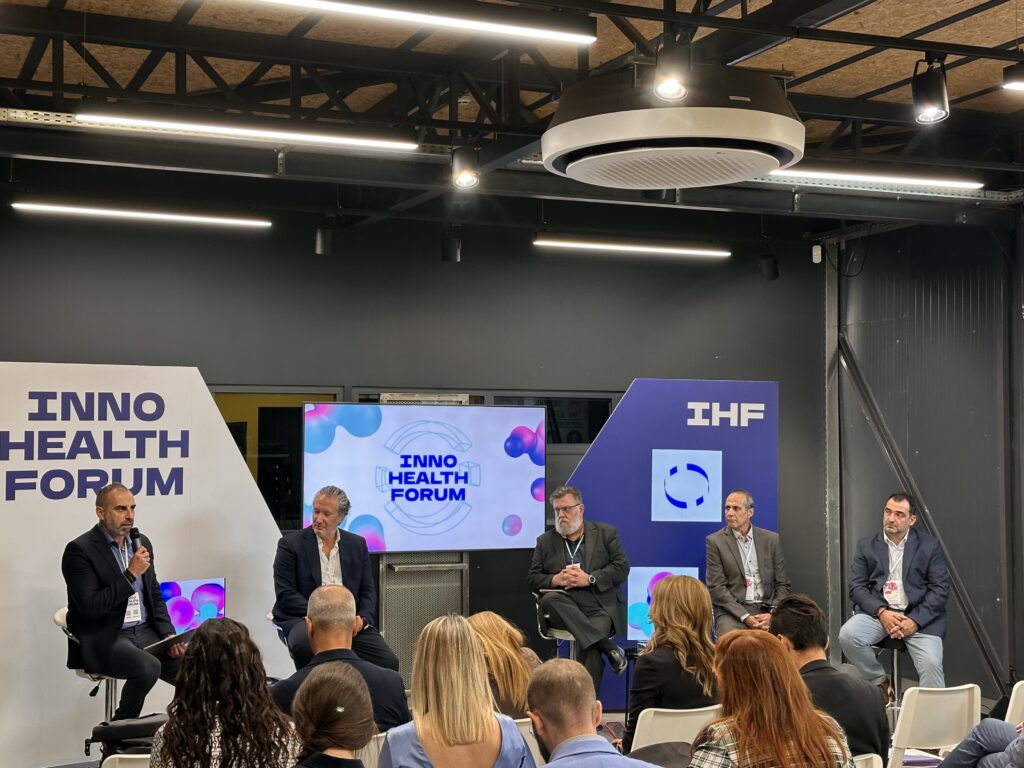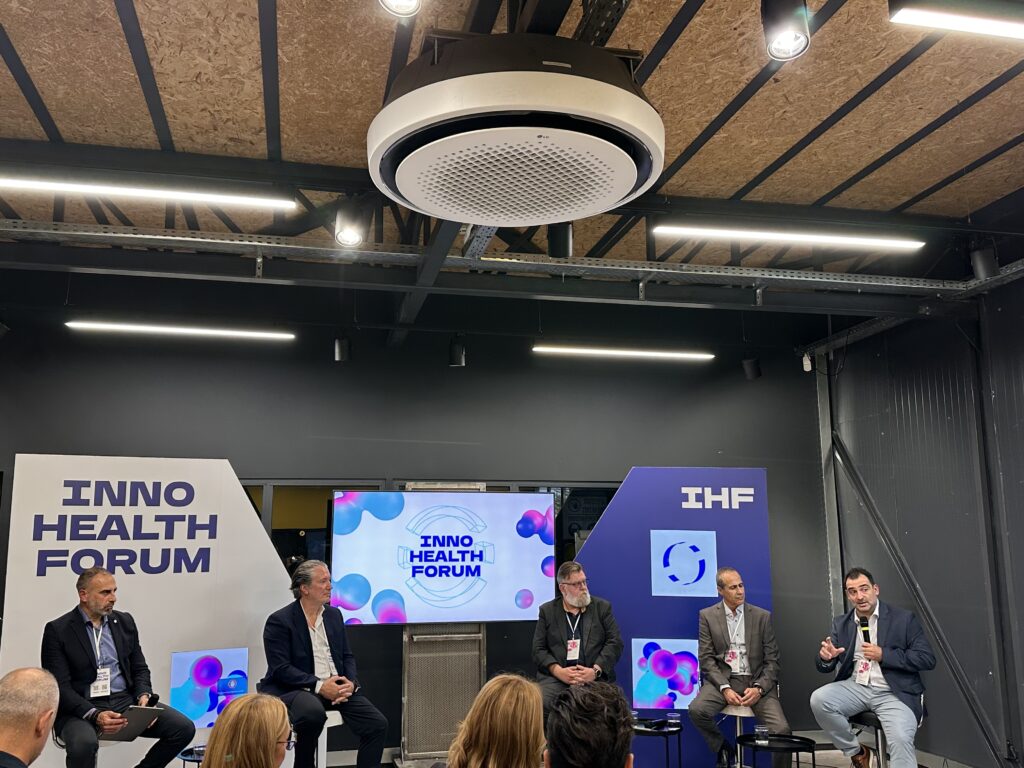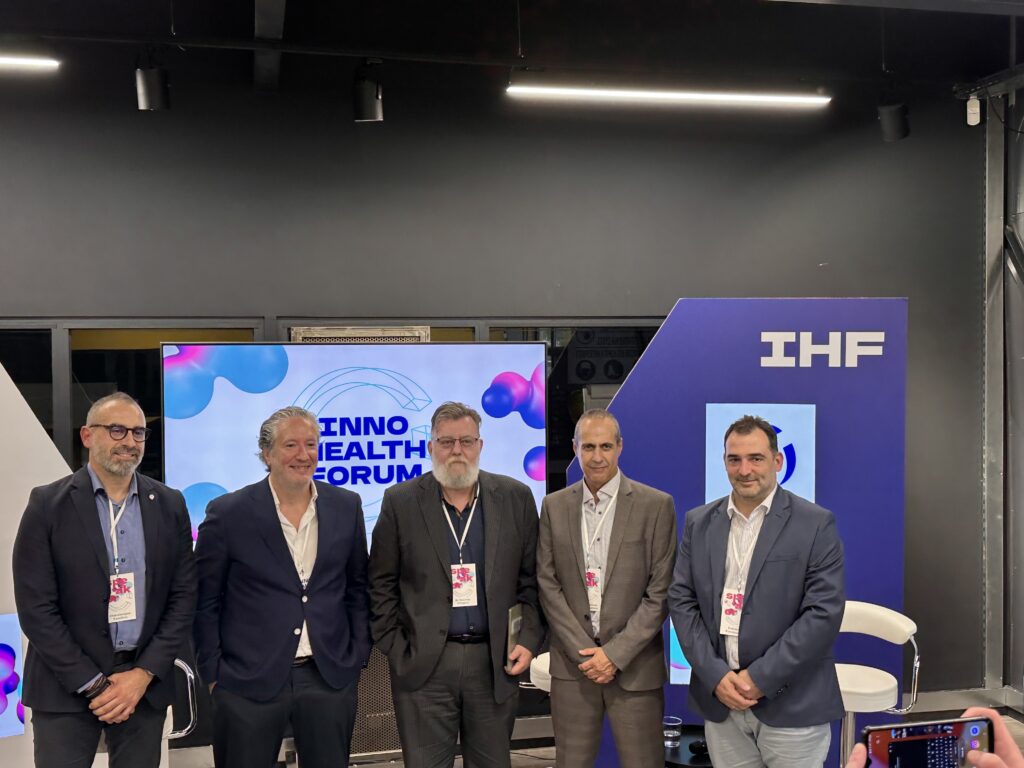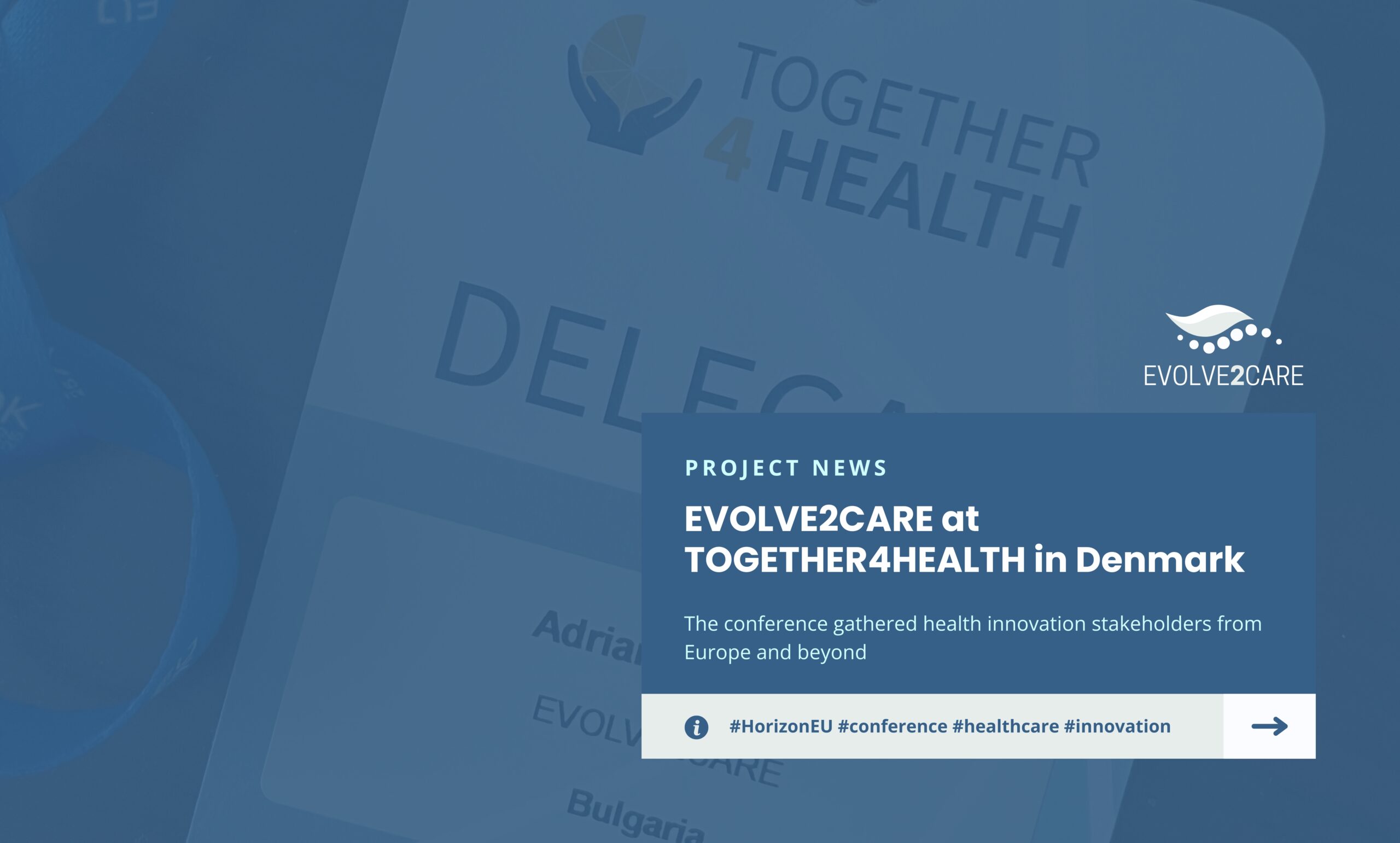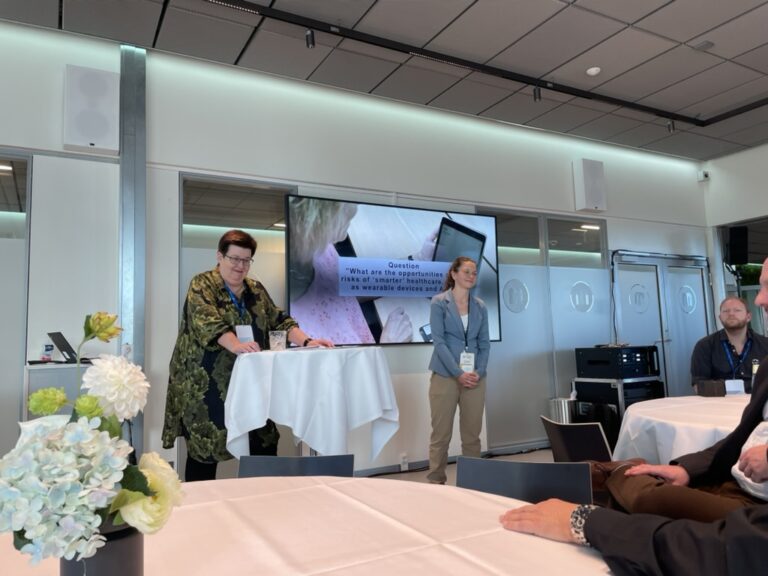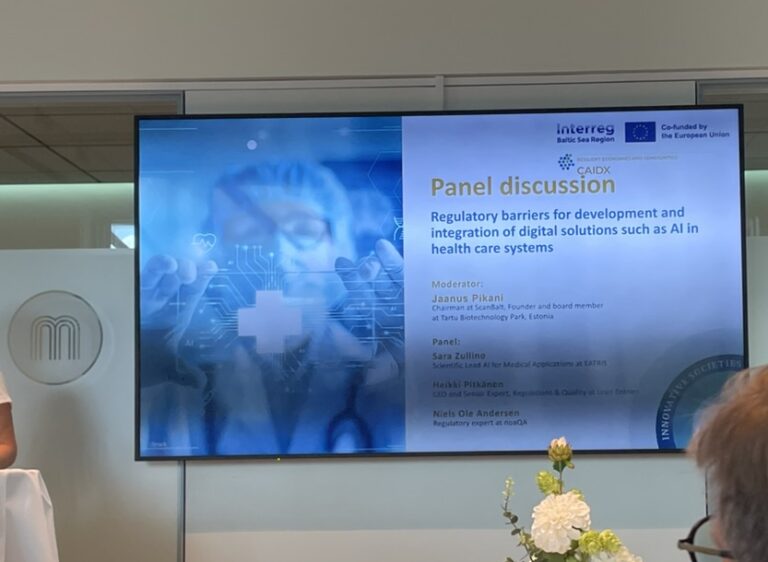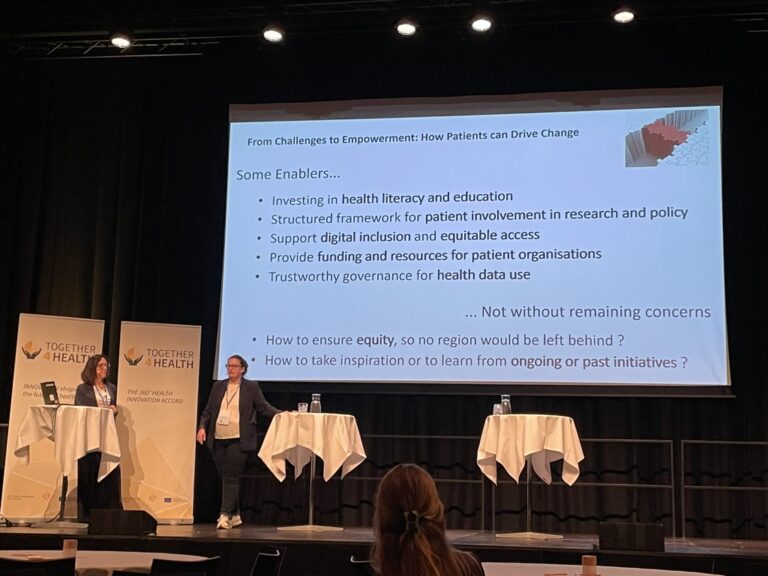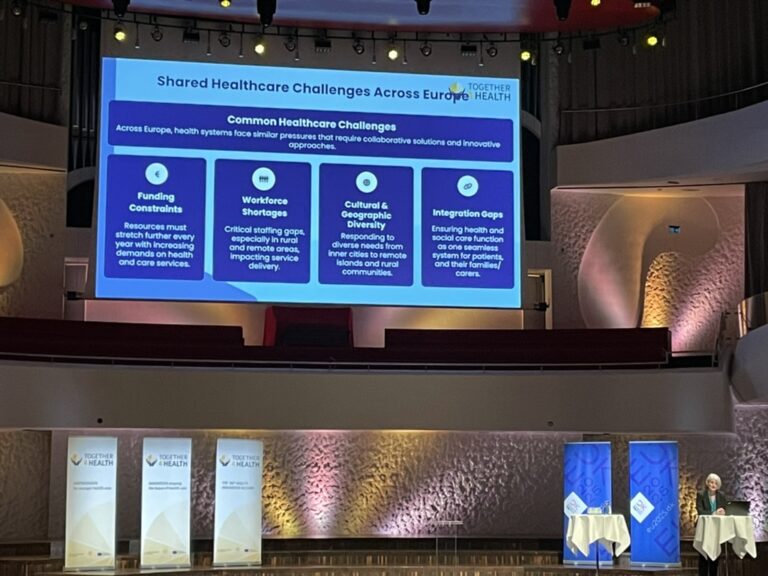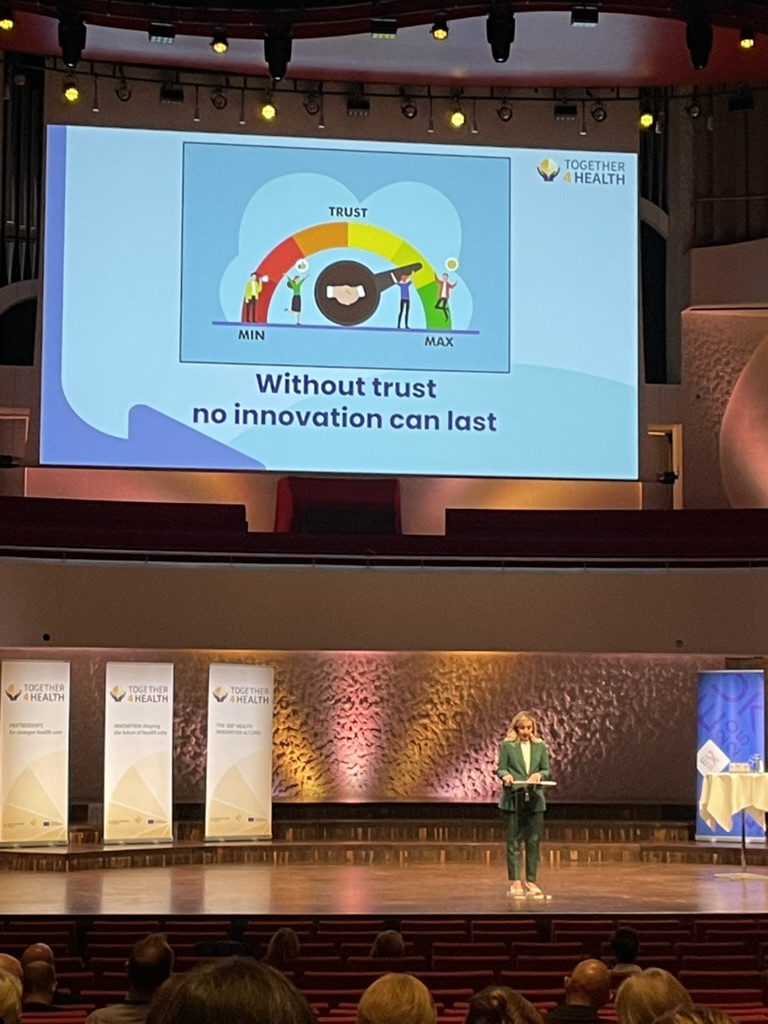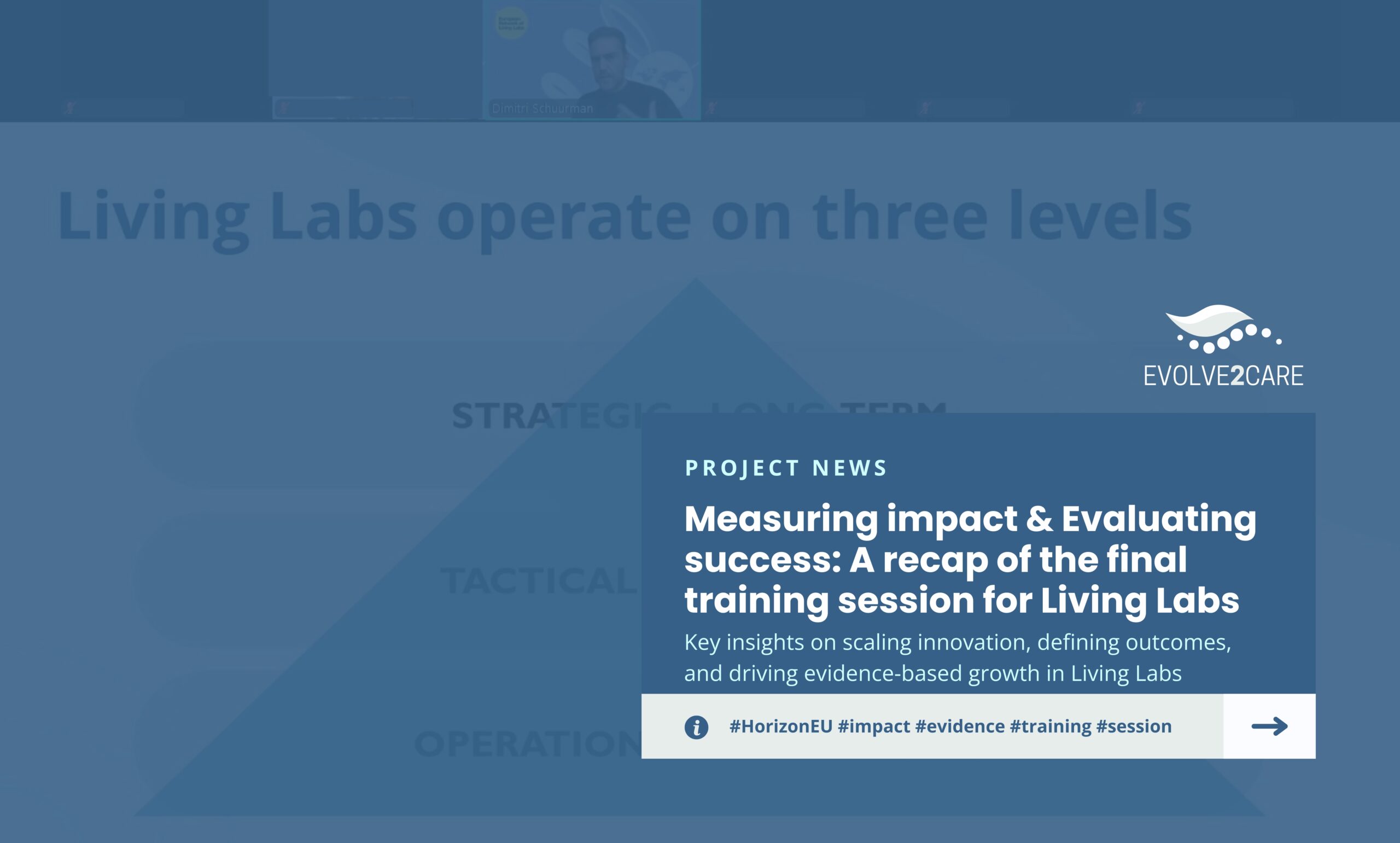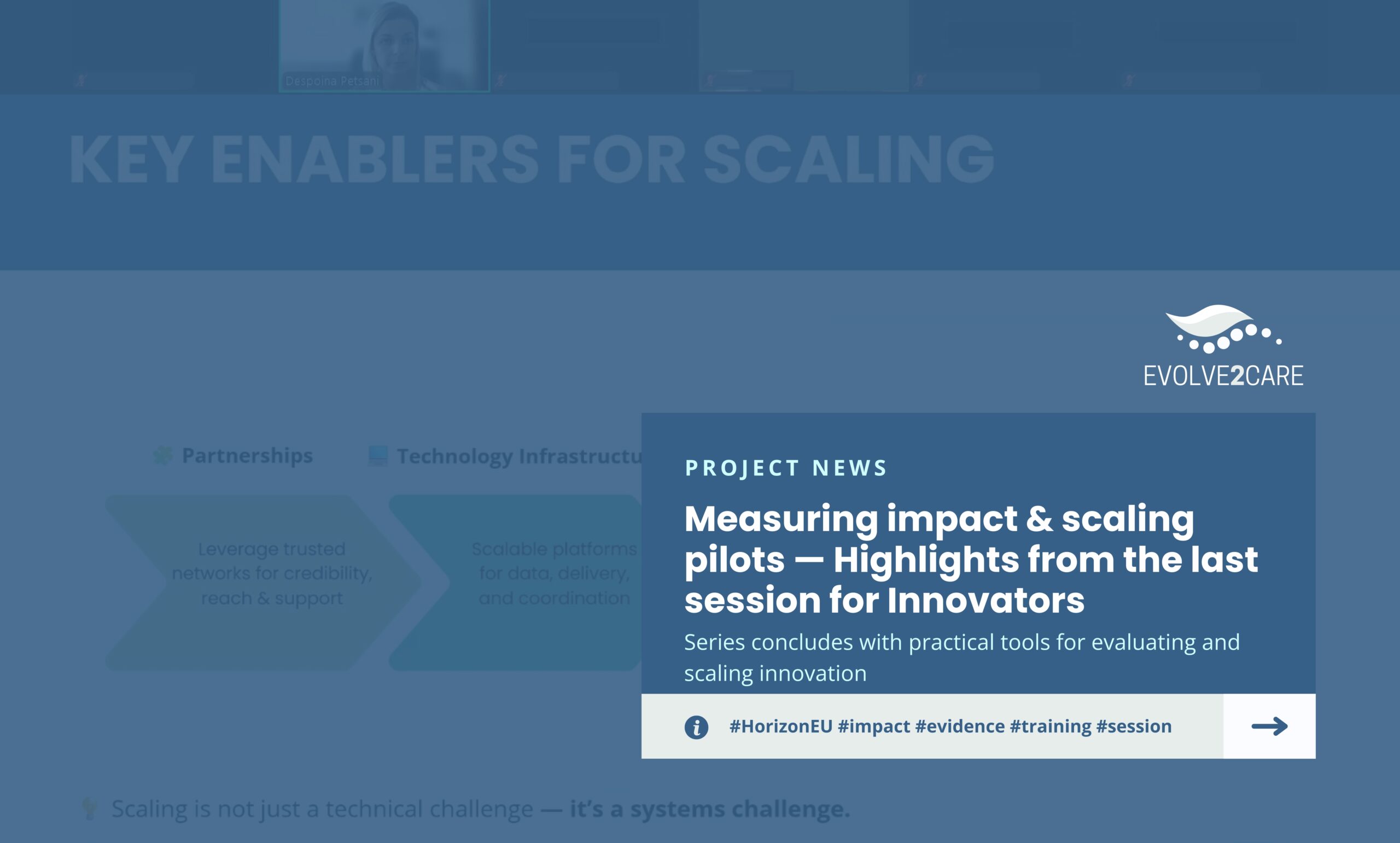EVOLVE2CARE was featured during the RAISE Final Event – “Exploitable Results and their Impact”, held on 14 January 2026 in Brussels, as part of the midday session dedicated to the adoption of RAISE beyond project boundaries. The event brought together European research, Living Lab, and Open Science stakeholders to discuss how RAISE supports FAIR, harmonised, and transparent data use across third-party initiatives and collaborative ecosystems RAISE_FinalEvent_Agenda_v1.0-ext.
During the session, EVOLVE2CARE was presented by AUTH and ENoLL partners as a concrete example of a HealthTech project leveraging RAISE functionalities to align with Open Science and Open Data principles, particularly in the context of Living Lab activities. The presentation highlighted how EVOLVE2CARE exploits RAISE to support structured data management, facilitate collaboration between SMEs and Living Labs, and ensure FAIR handling of data generated through real-world experimentation.
The project’s contribution was positioned within a broader discussion involving Living Labs and European networks adopting RAISE to enable interoperable, trustworthy, and reusable research outputs. This visibility further reinforced EVOLVE2CARE’s role as an active adopter of EOSC-aligned tools and practices, strengthening its engagement with European Open Science infrastructures and sister EU initiatives.
